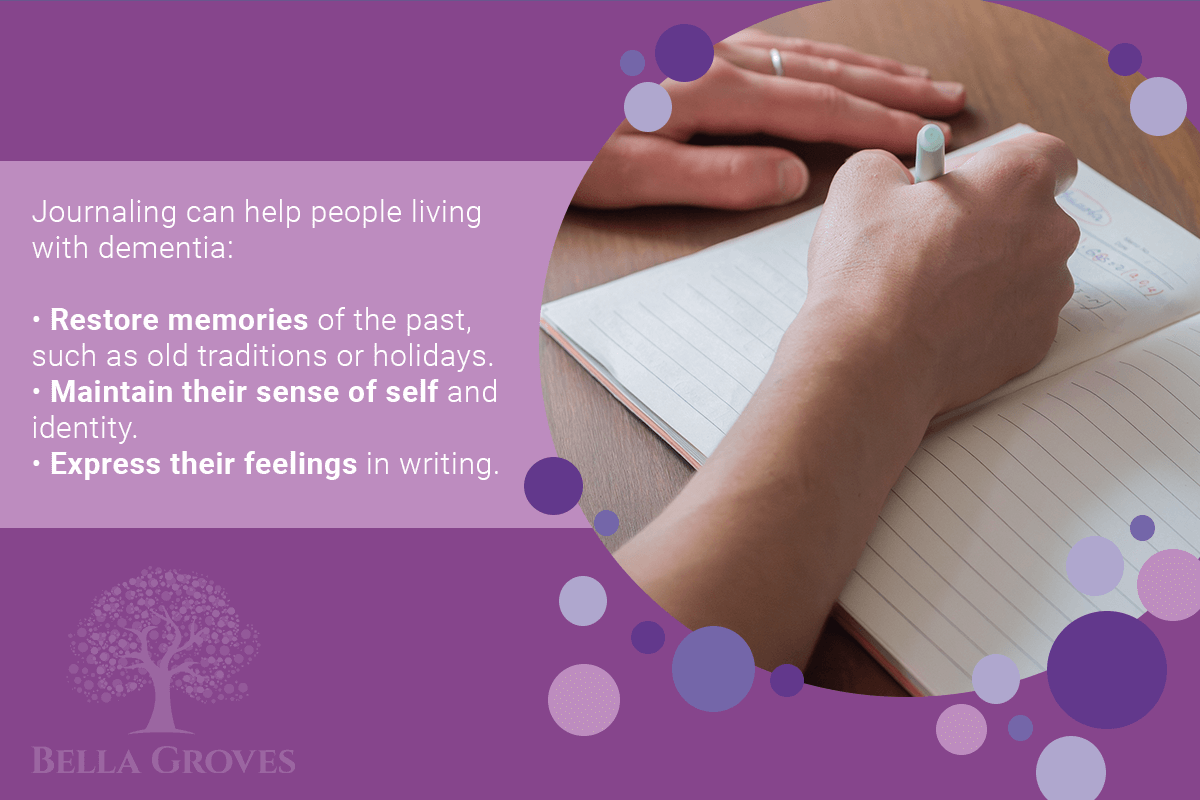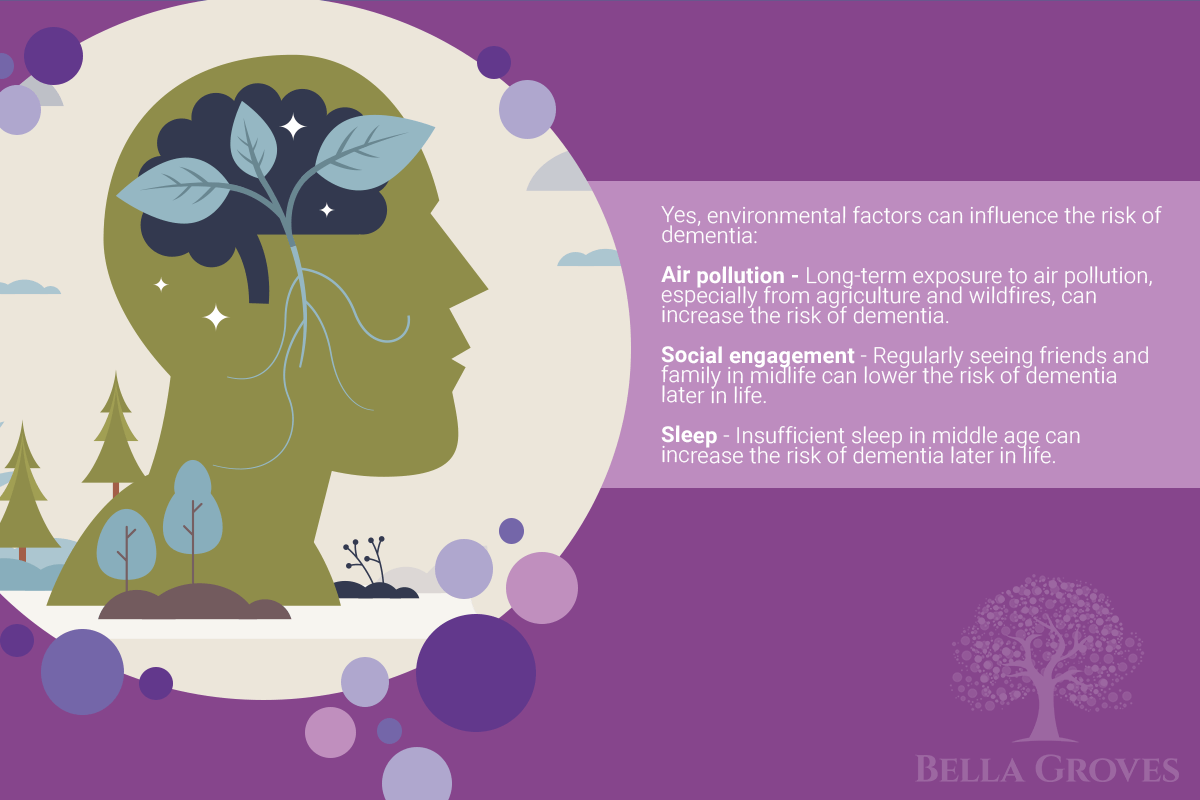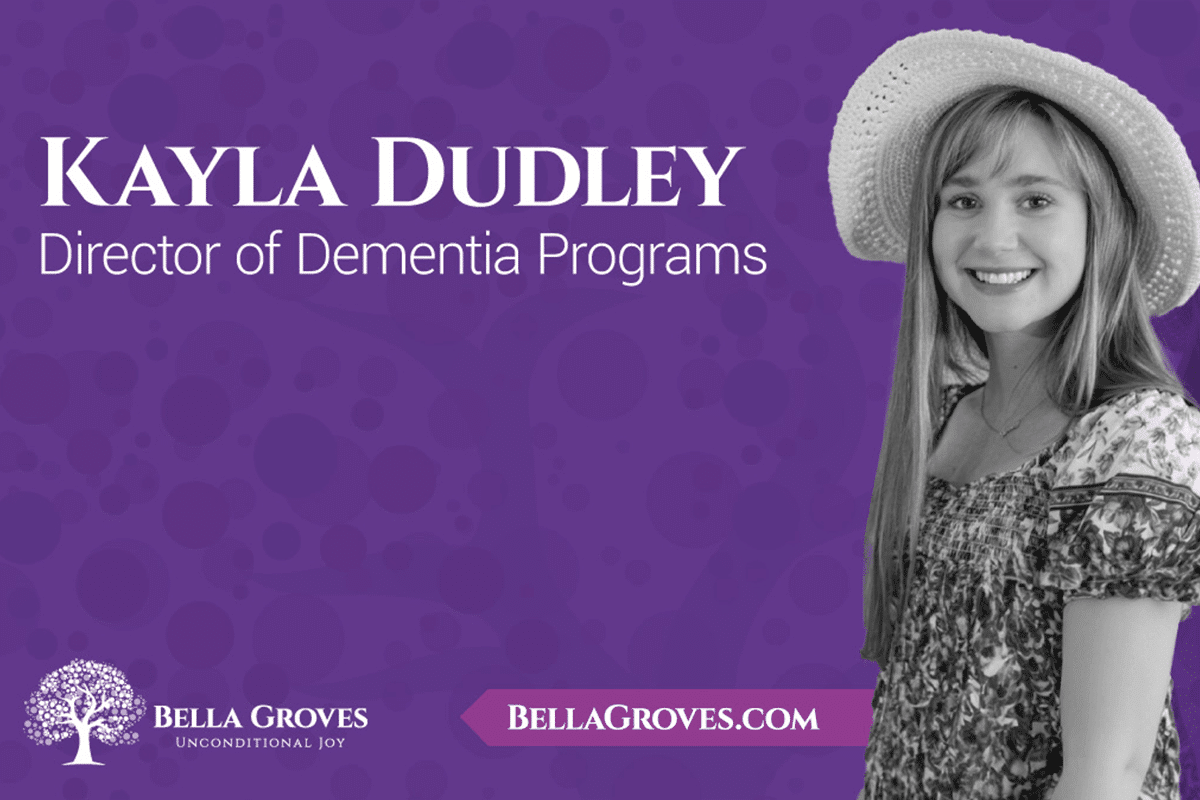
Hobbies for People with Dementia: The Benefits of Journaling
Navigating the world of dementia can often feel like an overwhelming tide, both for those living with it and the care partners committed to supporting them. Dementia, a progressive condition that can affect memory, reasoning, communication, and other cognitive abilities, brings with it waves of emotional and physical challenges that impact daily life. For partners, the experience can be just as demanding, requiring immense patience, empathy, and resilience.
At Bella Groves, we aspire to provide guidance and support through our educational offerings and support groups to make the caregiving journey smoother. One such tool, often underestimated yet profoundly impactful, is journaling. Let’s explore how this simple practice can transform the lives of those living with dementia and their care partners.
How Journaling Benefits Those with Early Dementia
Imagine a world where words become anchors for fleeting memories. Research consistently backs the idea that journaling can serve as a lifeline for cognitive functions and emotional well-being in individuals living with early-stage dementia. Writing – especially handwriting – even in its simplest form, stimulates brain activity, encouraging neural connections that help maintain cognitive abilities. The act of putting pen to paper can slow the progression of memory loss, offering a sense of control over one’s thoughts.
Journaling also provides an emotional outlet. It’s an opportunity for those with dementia to express themselves without judgment or fear. Many find comfort in recounting happy memories, while others may process difficult emotions through writing. This emotional release not only alleviates anxiety but also reinforces a sense of identity, fostering self-esteem and dignity.
Additionally, journaling provides a person living with dementia with an alternative means of expression, capturing thoughts and feelings they might otherwise struggle to convey. This can enhance communication with loved ones, strengthen bonds, and foster understanding.
Practical Tips for Introducing Journaling
Starting a journaling practice doesn’t need to be intimidating. Begin by selecting comfortable and inviting materials. Choose a notebook or journal that feels personal, perhaps with a cover that brings joy. Use pens or pencils that are easy to grip, catering to any physical limitations.
Timing is key; introduce journaling during moments of calm rather than forcing it into an already hectic schedule. Mornings, when the mind is fresh, or evenings, as a reflection of the day, can be ideal times. Create a conducive environment, free from distractions, allowing the individual to focus solely on their thoughts and words.
Prompts can serve as gentle nudges, sparking inspiration. Simple questions like “What made you smile today?” can open the floodgates to meaningful writing. Remember, the goal isn’t perfection but expression. Encourage creativity and individuality, applauding the effort rather than critiquing the content.
Remain vigilant in providing appropriate prompts based on their symptoms and needs. If they cannot recall a moment that made them smile today, you can simply modify the prompt to “What makes you smile when you think about it?”
Journaling as a Tool for Care Partners
For care partners, journaling isn’t just a tool—it’s a sanctuary. Amidst the hustle of daily caregiving responsibilities, it offers a space for self-reflection and stress management. Writing about challenges, triumphs, and everyday moments can provide clarity, helping caregivers process emotions and prevent burnout.
Keeping a journal also serves practical purposes. Documenting care progress, noting changes in behavior, or recording healthcare appointments can streamline communication with medical professionals. This level of organization can alleviate the burden on caregivers, ensuring they have readily available information for discussions with doctors or other caregivers.
Furthermore, journaling fosters personal growth. It allows care partners to track their own journey, recognize patterns, celebrate small victories, and identify areas for improvement. This practice enhances self-awareness, building confidence and resilience in the face of adversity.
Finding Calm Amidst the Storm
In the complex world of dementia caregiving, journaling shines as a beacon of hope and healing. It empowers those living with the condition by maintaining cognitive functions and providing a voice through words. For care partners, it offers a refuge, a means to manage stress, and a tool for better communication with healthcare providers.
Whether you are seeking help to become a more effective caregiver at home or you are exploring options for having your loved one live at and experience the joy of Bella Groves, we want to help you in your journey.
We encourage you to reach out and talk to one of our team members about your caregiver story. Join us for a support group meeting and meet other families who are caregivers. It takes a village to learn how to be a great caregiver, and we would be honored to walk alongside you.


